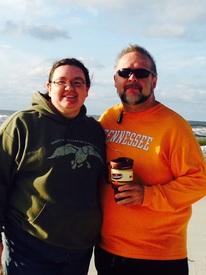Diet to lose FAT not muscle

EDollah
Posts: 464 Member
Hi I joined here 15 days ago and started an exercise/nutrition plan on April 1 (about 5 weeks ago). I started off at 340 pounds, currently I'm a little under 325 at 6'0" tall. I'm a 47 years old male.
I'd like to share my diet strategy in this forum to see if it seems reasonable for my goal to lose fat while minimizing muscle loss.
I've set a daily max of 2,000 calories and a min of 1,500. I've adhered to these constraints pretty reliably over these 5 weeks. I think I exceeded 2,000 just once and that was by about 100 cals. I've not been hungry and I'm very confident I can get to the end point with this diet.
I don't make any particular point to make sure my protein/carb/fat ratio is just right, but I THINK it's ok. I'm not depriving myself of periodically eating a beloved food that may not be ideal for weight loss. When I do eat something less healthy, say a burrito, I just make sure the rest of the day accounts for this spike.
Even though this is the diet forum, I'll throw in that I do cardio and lift weights 2 days out of every 3. I'll solicit feedback about my workout in the appropriate forum.
My first priority is to lose a lot of weight and it sounds, from what I can tell, that muscle is lost as collateral damage when a huge amount of weight is lost in a short time. So I accept that will happen, I just want to minimize this muscle loss.
Have any of you dudes (or dudettes) had a similar goal when losing a lot (like over 100 pounds) of weight to keep muscle? If so what worked and what would you suggest I change in my approach?
Thanks in advance.
I'd like to share my diet strategy in this forum to see if it seems reasonable for my goal to lose fat while minimizing muscle loss.
I've set a daily max of 2,000 calories and a min of 1,500. I've adhered to these constraints pretty reliably over these 5 weeks. I think I exceeded 2,000 just once and that was by about 100 cals. I've not been hungry and I'm very confident I can get to the end point with this diet.
I don't make any particular point to make sure my protein/carb/fat ratio is just right, but I THINK it's ok. I'm not depriving myself of periodically eating a beloved food that may not be ideal for weight loss. When I do eat something less healthy, say a burrito, I just make sure the rest of the day accounts for this spike.
Even though this is the diet forum, I'll throw in that I do cardio and lift weights 2 days out of every 3. I'll solicit feedback about my workout in the appropriate forum.
My first priority is to lose a lot of weight and it sounds, from what I can tell, that muscle is lost as collateral damage when a huge amount of weight is lost in a short time. So I accept that will happen, I just want to minimize this muscle loss.
Have any of you dudes (or dudettes) had a similar goal when losing a lot (like over 100 pounds) of weight to keep muscle? If so what worked and what would you suggest I change in my approach?
Thanks in advance.
0
Replies
-
to minimize muscle loss you need to do some form of weight lifting.0
-
You need, what is considered to be a high protein diet, to minimize muscle/lean body mass loss while weight lifting, while on a calorie deficient diet. So, it is something to be concerned about.0
-
You need, what is considered to be a high protein diet, to minimize muscle/lean body mass loss while weight lifting, while on a calorie deficient diet. So, it is something to be concerned about.
^^^^^^^^^^ this0 -
Lift weights and keep protein intake up!!0
-
to minimize muscle loss you need to do some form of weight lifting.
I agree with this. Since you wish to lose 100lbs, you can do a pretty severe calorie deficit for a while without it harming muscle mass. It is only when you are down to the last 10-20% of your weight loss journey that you really have be eating at a very slim deficit.
The main key is eating nutrient dense foods (read lots of fresh fruits and veggies, lean meats and complex carbs.) and avoid high calorie foods by weight volume.
One ounce of cheddar cheese is about 110 calories. This would be considered a caloricly dense food. Sure cheese has some good aspects (calcium, protein, Vitamin D, Vitamin A) but the ratio of calories to nutrients is not a good one.
One ounce of spinach has only 7 calories and packs a nutritional punch like taking a vitamin, plus fiber.
To compare the two foods, and ounce of cheddar cheese is a small 1" cube. An ounce of Spinach is about a cup's worth. Your total volume of food is greater with spinach, and will keep you full longer if you top it with a little olive oil for satiety.
Your body can tolerate a much bigger calorie deficit if you are eating nutrient dense, calorie light foods. This is why people who go on those juicing diets are able to lose so fast, they have the nutrients their body's need without the extra calories.
This isn't sustainable over the long term, though. And you should have one or two days a week where you are eating at TDEE calorie levels to prevent your metabolism from slowing too much.0 -
Thanks everybody. I appreciate the responses, each and every one.
Trust me, as I said in the OP, I'm lifting weights. My aches can verify that for me.
I do have one follow-up question to the suggestions to increase protein...
I was actually considering supplementing my diet with either a protein shake or protein bar to get up to 2,000 calories. Let me throw some numbers out to see if you agree. Warning, math ahead:
BMR (Mifflin St Jeor method) = 2400ish
Expended calories for 2 exercise days = 1200
Expended calories for 1 off day = 120 (I take a 20 minute walk on days off)
This gives a weighted average of 2/3 * 1200 + 1/3 * 120 = 840 calories per day
That makes (weighted) average TDEE = 2400 + 840 = 3240
As I mention in the OP, I tend to average about 1800 calories consumed per day.
Given all that, how much additional protein would you suggest that I add?
Apologies if it seems I'm trying to avoid doing my own due diligence to research this topic by just having you good folks spoon feed me answers. When I find articles about losing fat and maintaining muscle, they seem to focus on bodybuilding. I've found very little about losing a large amount of weight with those constraints so I want to pick your brains.
TheRealParisL, I dig your thoughts too and I'm going to try your suggestion in the not too distant future, when I want to shake things up a bit.0 -
Eat 1g of protein per lb of lean weight. I have absolutely no idea how much that would be for you, but if you find a body fat calculator, you can probably figure it out.0
-
I started out at 340 pounds in March 2012 at 53 years old./.....I am now at 242 pounds. Went from a size 44 jeans to size 36.
I ate a variety of foods.......had many days where I went off eating healthy but got right back on track.....never beat myself up if I
fell off the wagon so to speak. Keep in mind it will take time and every small step is progress.
I cant stress enough about doing weight training....it has made a HUGE difference for my body shape. I have a friend who started out at the same weight as myself and he has lost weight thru drinking Vi shakes(which I think are crap) and does no resistance training. The difference between how we look are like night and day.
Just keep at it and the results will come.0 -
Hi,
I think a protein based diet would work. If you do that you should eat 1 gram of protein for the weight you would like to be. I did this meal plan and it worked for me. Whey protein powder does help you increase your protein with minimal carb intake. Muscle does burn fat. If you start to focus on muscle and eat protein you will lose weight and gain muscle. Balancing out the carbs and fats help. Both of these also play a key role in burning fat.
I suggest this ratio
1 gram protein per 1lb you want to weight
Fats - 40% of the amount of protein you eat
Carbs - fill in the rest to make your calories total for the dayqw0 -
Specifically weight lifting that "challenges" the muscle. High reps/low weight don't "challenge" the muscle the same way as low reps/high weight do.to minimize muscle loss you need to do some form of weight lifting.
To the OP, muscle loss will occur even with the best bodybuilders on the planet while in calorie deficit. Just do what you can to keep as much as you have now.
A.C.E. Certified Personal and Group Fitness Trainer
IDEA Fitness member
Kickboxing Certified Instructor
Been in fitness for 28+ years and have studied kinesiology and nutrition0 -
when i first started i went from 280 to 225 in 5 months with like NO lean mass lost eating between 1400-1800 cals a day and ridiculous amounts of cardio and some weights. with that much fat your body will choose it for energy. these last 20 lbs of fat dont like going w/o taking muscle with them, so im gonna cut the cardio and up the weights with a small deficit in hope of that helping.0
-
I started out at 340 pounds in March 2012 at 53 years old./.....I am now at 242 pounds. Went from a size 44 jeans to size 36.
I ate a variety of foods.......had many days where I went off eating healthy but got right back on track.....never beat myself up if I
fell off the wagon so to speak. Keep in mind it will take time and every small step is progress.
I cant stress enough about doing weight training....it has made a HUGE difference for my body shape. I have a friend who started out at the same weight as myself and he has lost weight thru drinking Vi shakes(which I think are crap) and does no resistance training. The difference between how we look are like night and day.
Just keep at it and the results will come.
This is soo true, I myself started around 380 and it is a long process but you can get there. remember to track everything even bad days, it will help keep you accountable.0 -
Can't stress how much this post alone has helped me figure things out. Been on other sites, just joined this one. 49 years old, 320 pounds, dieter on and off all my life. Been trying to fine tune my own dietary requirements to take some serious weight off. Have been trying to stick between 1600 and 2000 calories, but not exactly sure of the protein/fat/carb ratio that would keep me on a good track. Thanks to the OP and all replies. Much appreciated.0
-
My weight has remained stable whilst I've gotten leaner and stronger up until recently (my goal wasn't weightloss, but improved strength and fitness), by eating at about a 500 cal daily deficit and training with heavy weights. My diet has gone from looking like a 40P:30C:30F ratio to, more recently 200g Protein, 80g Fat and whatever else in carbs.
I'm just now shifting the focus slightly more toward weightloss, so I'm at about an 800-900 cal daily average deficit - at this range I retain my strength which to me is a good indication that I'm not losing too much muscle.
My advice to you is that you should be okay in the calorie range you are so long as you are regularly performing heavy resistance exercise.0 -
The generally accepted method for calculating BMR is the Schofield method. You'll find that Dietitians and registered nutritionists will use the formula set forward by Schofield's research.0
-
Congrats on your progress so far, OP!
If you want to prevent muscle loss, or at least mitigate it, you need two things: protein and resistance training
Given the amount of excess weight you have to lose, though, this is unlikely to be a huge issue at first. While you may lose a little muscle, you're going to lose MUCH more fat.
You can maintain and even build muscle while running at a calorie deficit if you keep your protein reasonably high and do resistance training 3-4x/week. A VERY rough guide would be to make protein about 30-35% of your daily intake. Don't eliminate Carbs. They should be in the 45% range, and the rest for fat.
But again, based on your stated goals, I don't think muscle loss is a huge worry at this stage. Focus on trimming the fat. You can add the muscle back later - same way: protein and resistance training.
Keep up the good work!0 -
1. Keep your protein high to allow your muscles to repair.
2. Keeps carbs up. Their insulin effect helps you retain muscle.
3. Don't go mad with low steady state cardio. You can do some but don't go for an hour jog or anything. HIIT is considered by some more muscle sparing (http://www.ncbi.nlm.nih.gov/pubmed/16541371)
4. Don't create a calorie deficit of more 25% MAX, ideally 20% below your TDEE.
5. Lift heavy weights. You need to force your body to at least try and repair them and become stronger. And yes, even though this is one of the most hotly debated topics around, it IS possible to build muscle in a calorie deficit (not an extreme on) IF you are new to weight lifting. It just won't be as quick as in a calorie surplus of course.
6. Get enough sleep (8 hours). This is when protein synthesis is unregulated and your body heals.
7. Take BCAAs (optional).0 -
As you lose weight you will lose muscle in addition to fat, it's unavoidable. However, to mitigate muscle loss there's two things you should do. 1. Pick up a beginners heavy lifting program like strong lifts 5x5 (which is what I'm doing) and 2. make sure you are getting enough protein in your diet. 1 gram to .8 grams per pound of body weight is a good goal to shot for.
By lifting heavy weights and consuming adequate amounts of protein you will mitigate muscle loss. One common trend that I see from people who went from obese to low fat is that they wish they picked up heavy lifting from the very beginning. I highly recommend that you check out this guy's youtube channel. His name is Vismal in this community and he went from obese to looking pretty good. He has lots of good videos and advice for losing weight and proper nuitrition.
HOpe it helps!
https://www.youtube.com/embed/9CO2kzur_cU?list=UUXDX5yHGUm5xIKv46yxm9JA0
This discussion has been closed.
Categories
- All Categories
- 1.4M Health, Wellness and Goals
- 398.2K Introduce Yourself
- 44.7K Getting Started
- 261K Health and Weight Loss
- 176.4K Food and Nutrition
- 47.7K Recipes
- 233K Fitness and Exercise
- 462 Sleep, Mindfulness and Overall Wellness
- 6.5K Goal: Maintaining Weight
- 8.7K Goal: Gaining Weight and Body Building
- 153.5K Motivation and Support
- 8.4K Challenges
- 1.4K Debate Club
- 96.5K Chit-Chat
- 2.6K Fun and Games
- 4.8K MyFitnessPal Information
- 12 News and Announcements
- 21 MyFitnessPal Academy
- 1.5K Feature Suggestions and Ideas
- 3.2K MyFitnessPal Tech Support Questions














